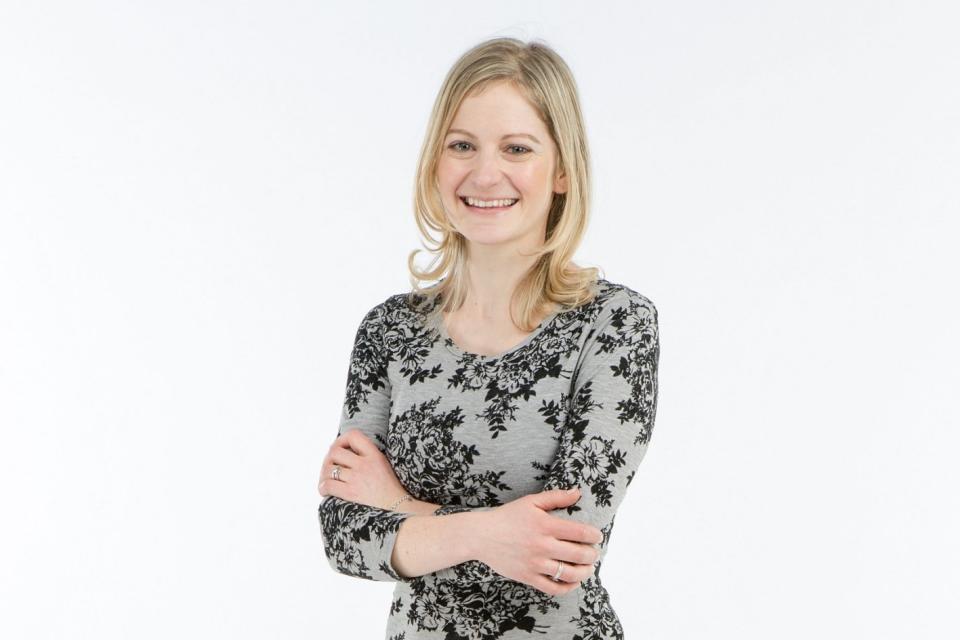Lucy Tobin: Who’s really watching who in the brave new world of tech-stalking?

A memory: I’m 10 years old and, for the first time, allowed to walk to a local newsagent, without my parents. A first bite of freedom — it tastes of fizzy cola bottles and Freddos, plus Sugar magazine and magnet earrings to celebrate independence.
Weeks later, at a friend’s house; returning from a similar solo walk, this time with marshmallows (that we’d later toast in a toaster, starting a small fire and a long pocket-money repayment scheme). Almost home, my friend recognised a slow Peugeot; her dad was following us. He’d been worried, he explained! She cried — she’d thought he trusted her; she felt betrayed.
That wouldn’t happen today. Now teens are willingly — because it’s the caveat that gave them an iPhone — tracked on apps such as Life360. Spouses do the same, submitting to 24/7 surveillance.
Mostly the tech’s use is benign. But it’s growing, fast. At dinner with a friend last week, she watched her babysitter’s boyfriend arrive via her home’s CCTV app and grew frenzied. “Should I say something? But she’ll know I’m watching...”
I was beach-side in Greece last week, logging into my Ring video doorbell every time it buzzed with a motion alert.
Mostly it was squirrels and foxes; hardly the right way to “switch off” on holiday, but the apps make it easier to deal with deliveries or watch over your home; they’re helpful life companions.
Is tech-stalking OK, though?
Run by flaw-filled humans, they can be tools for abuse: the woman whose partner started controlling her wi-fi usage and blocking her from their home’s “smart” heating; the doorbell cameras used to track cheating spouses; Amazon’s listening device Alexa recording and disseminating private conversations.
The robots can be brilliant household additions.
But we need to think twice about what power we allow them to wield.
Play by the rules this Halloween
Halloween: how soon is too soon? Houses in my road are already dripping with fake cobwebs. Social media is full of moaners anticipating trick-or-treaters with dread. But there’s a strict etiquette around my way: kids knock at houses with pumpkins and ignore the rest. Those who want to get involved, do; those who don’t, hide.
My personal rule is: the pumpkin stays out for the little kids until 7pm-ish — then it disappears when the “drive-by” teenagers arrive, tumbling out of their parents’ 4x4s for a sugar-grab, then getting back in the car to the next house.
Too lazy to deserve my Haribo.
I get a sinking feeling about Titanic II
Australian firm Blue Star Line says it’s back on track with plans to create Titanic II, “a full replica with all the luxury of today”, after legal wrangles delayed the project.

The ship will follow the same route as the original, apparently, sailing from Southampton to New York. But why replicate building what was literally a sinking ship?
There’s obviously a whiff of PR about it all — the Australians are already dangling the “exclusive rights for global partners to leverage the Titanic ll brand for use in their licensing, advertising and marketing campaigns.”
But what bad taste. More than 1,500 died on the original Titanic.
There’s also — despite the best efforts of the film starring Leonardo DiCaprio and Kate Winslet — a suggestion of historical ignorance about the ship’s fate at Blue Star Line.
It braggingly promises passengers “an authentic Titanic experience”.
Surely in the cruising world, the Titanic experience is the one holiday ending you want to avoid.
Safety first, and particularly online
A study from consumer group Which? finds Amazon and eBay selling potentially deadly carbon monoxide and smoke detectors.
While high street shops sell only certified models which meet safety standards, outmoded legislation means online trading is Wild West.
Amazon and eBay withdrew the products once alerted by Which? but more will crop up.
We’ve seen the Government’s reluctance to touch online behemoths’ tax avoidance and employment practices — but when they sell dangerous “safety” products that could be the difference between shoppers’ life or death, it’s time for a crackdown.

 Yahoo News
Yahoo News 